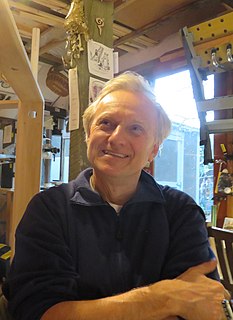A Quote by Warren G. Bennis
Innovation- any new idea-by definition will not be accepted at first. It takes repeated attempts, endless demonstrations, monotonous rehearsals before innovation can be accepted and internalized by an organization. This requires courageous patience.
Related Quotes
Implementing any major changes to the way companies operate requires time and determination and the shift to globally integrated innovation is no exception - it calls for new capabilities to be built, changes in the structure of the innovation organization, new systems, processes and mindsets. The scope and scale of this task shouldn't prevent executives from starting down the path of change as the systemic nature of innovation activities means that every single element of change that's brought about will make a difference.
Innovation is a subset of creativity. Innovation often deals with product launches and is often relegated to the C-suite or to heads of R&D departments. Innovation requires creativity, but creativity is something that is much more broad. It applies to people at all levels of an organization. Today, we all are responsible for delivering "everyday creativity". Small creative acts that add up to big things.
The changing styles are the expression of a restless search for something which shall commend itself to our aesthetic sense; but as each innovation is subject to the selective action of the norm of conspicuous waste, the range within which innovation can take place is somewhat restricted. The innovation must not only be more beautiful, or perhaps oftener less offensive, than that which it displaces, but it must also come up to the accepted standard of expensiveness.
Creativity is the generation and initial development of new, useful ideas. Innovation is the successful implementation of those ideas in an organization. Thus, no innovation is possible without the creative processes that mark the front end of the process: identifying important problems and opportunities, gathering relevant information, generating new ideas, and exploring the validity of those ideas.



































